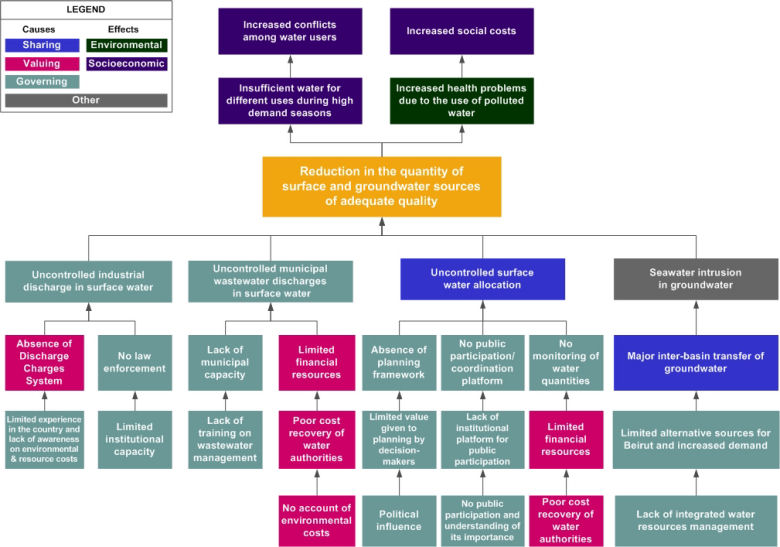The Damour River basin is currently facing increasing water stress, manifested through the decrease in the total amount of surface and groundwater of adequate quality available to meet the needs of local domestic, agricultural and industrial users. The problem is particularly acute in the irrigated coastal plains of Damour, where farmers complain about the lack of water during the summer season, because the river water is abstracted upstream and there is no rational allocation of water. Groundwater resources are also under stress due to important abstractions particularly for inter-basin transfer to the Beirut area. In addition, the Damour municipality has repeatedly expressed its concern about the increased salinity of groundwater.
A tentative analysis of the causes and effects of this problem is presented in the Figure below.

The focal problem is caused by several factors including uncontrolled discharges of industrial and domestic wastewater in surface water, uncontrolled surface water allocation, and seawater intrusion in groundwater. These are in turn attributed to limited law enforcement, inadequate regulatory instruments, limited capacities of authorities (particularly for law enforcement), limited financial resources, absence of a clear planning framework, absence of a participation and coordination platform, and limited monitoring activities. Inter-basin transfer of groundwater resources is leading to deterioration of groundwater quality in the coastal area. These issues are further caused by lack of relevant awareness and technical capacity, by social and political pressure from user groups, and lack of integrated management of the water resources of the area.
It is expected that the focal problem could further lead to an increased number of conflicts among water users, and to increased social costs incurred from health problems associated with the use of polluted water.